Find Help
More Items From Ergsy search
-
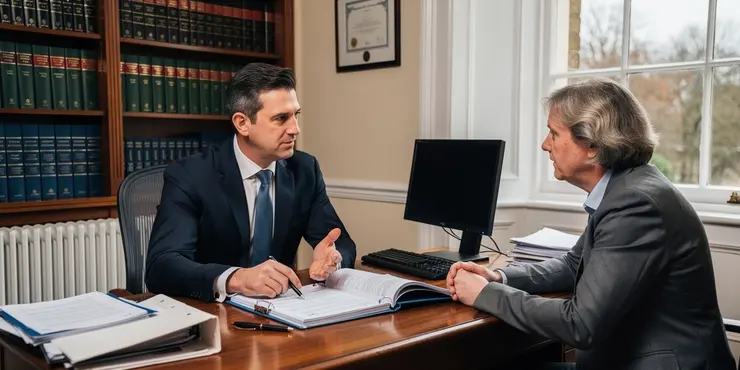
What is a Power of Attorney?
Relevance: 100%
-
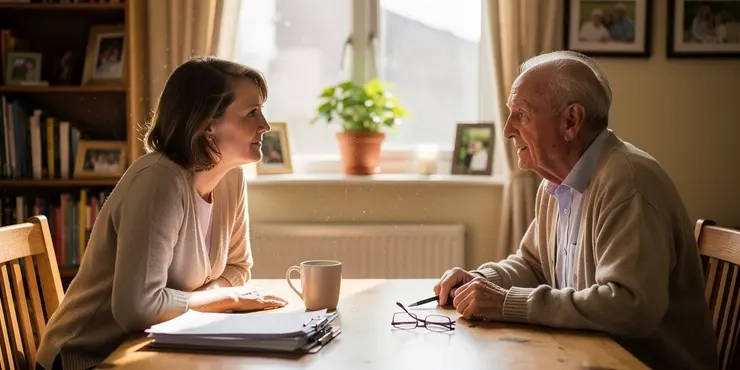
What Is A Power of Attorney
Relevance: 99%
-
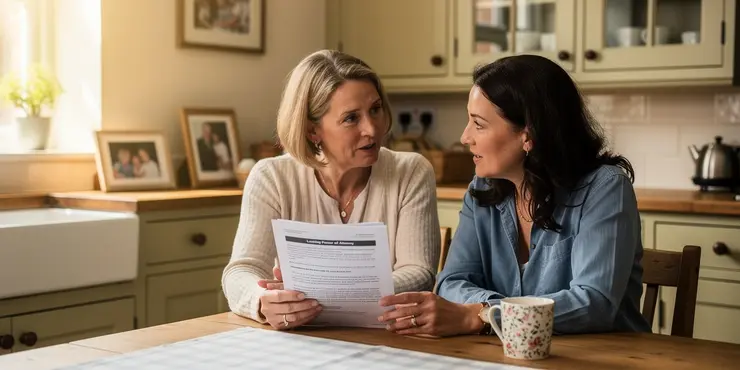
What is a Lasting Power of Attorney?
Relevance: 92%
-
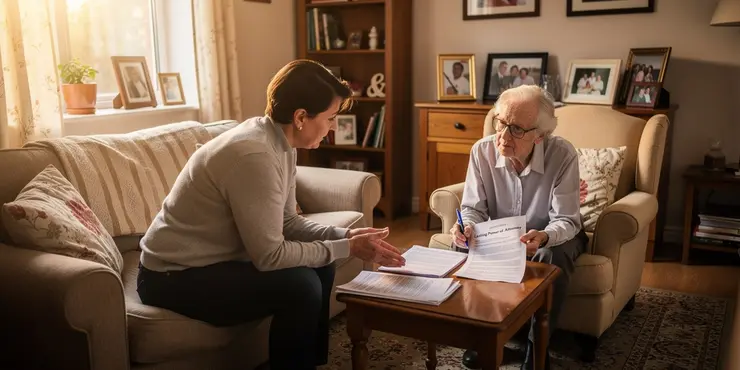
What is a lasting Power of Attorney?
Relevance: 89%
-
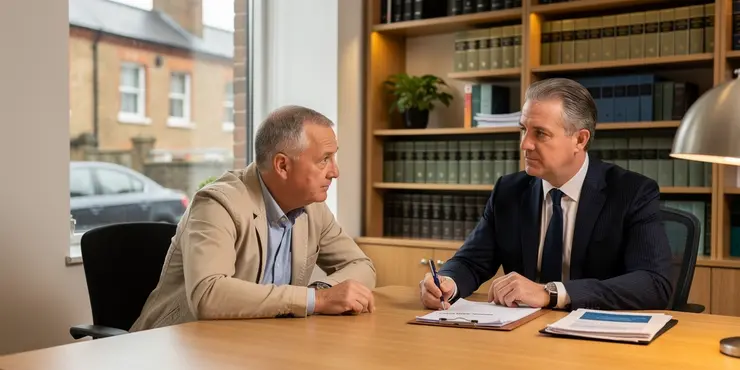
What are the types of Lasting Power of Attorney?
Relevance: 85%
-
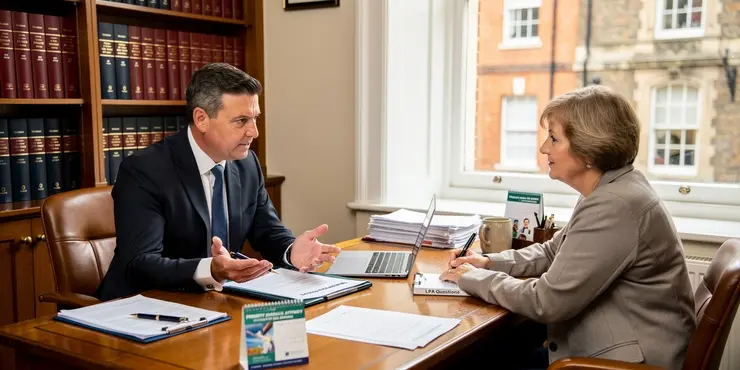
What are the types of Lasting Power of Attorney (LPA)?
Relevance: 84%
-
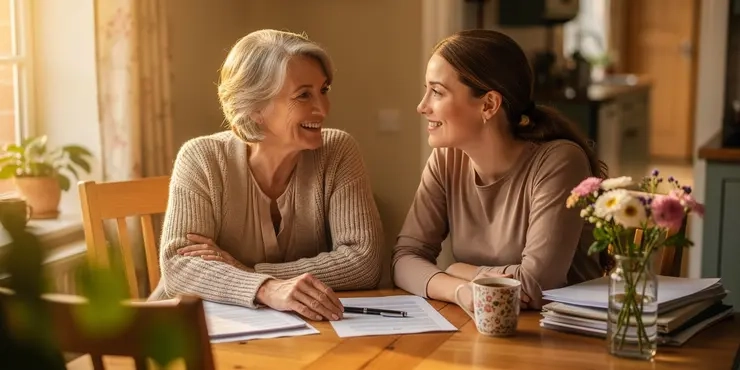
Lasting Power of Attorney UK - A 2023 Guide
Relevance: 84%
-
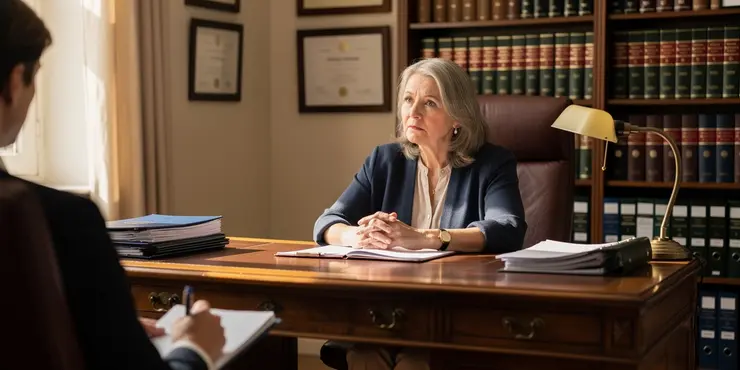
Court of Protection and lasting power of attorney.
Relevance: 82%
-
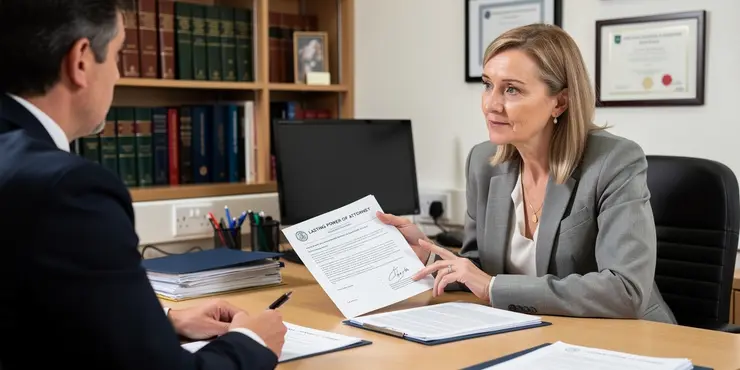
How to Set Up a Lasting Power of Attorney
Relevance: 81%
-
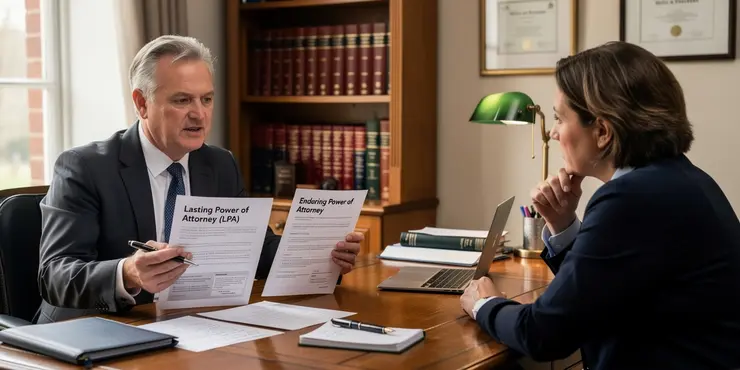
How does an LPA differ from an Enduring Power of Attorney?
Relevance: 79%
-
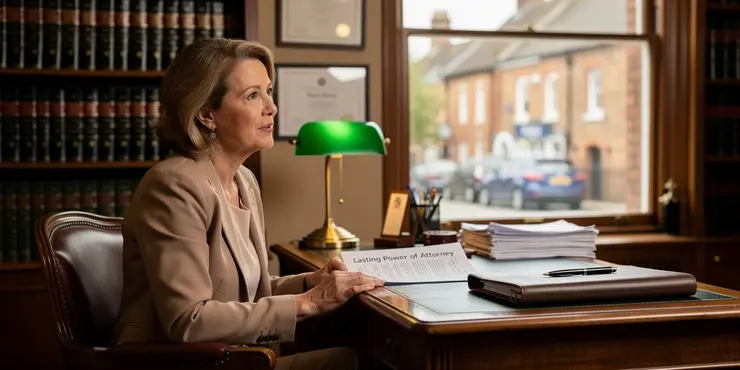
Who can be appointed as an attorney under a Lasting Power of Attorney?
Relevance: 79%
-
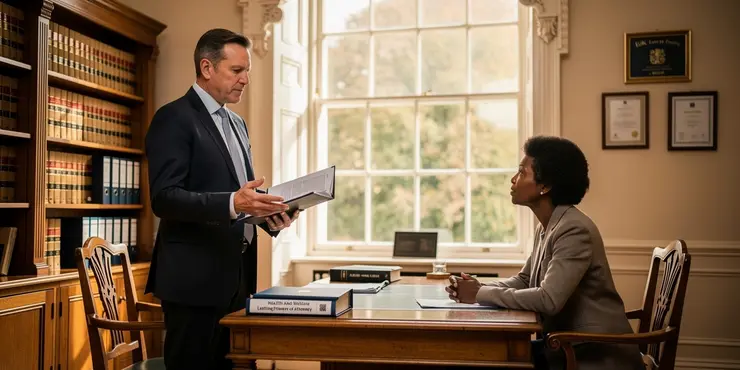
What powers does an attorney have in a Health and Welfare LPA?
Relevance: 77%
-
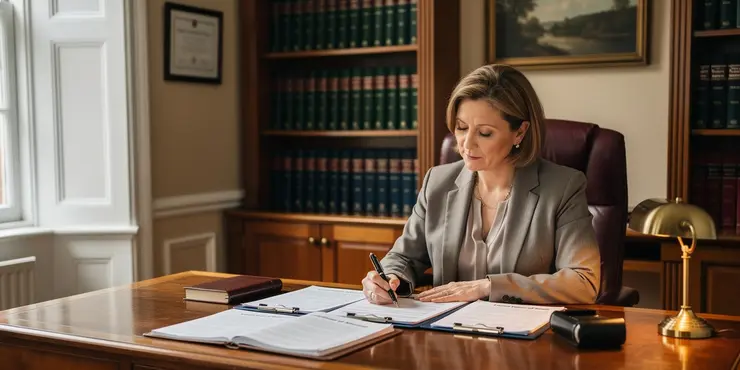
How do I set up a Lasting Power of Attorney?
Relevance: 77%
-
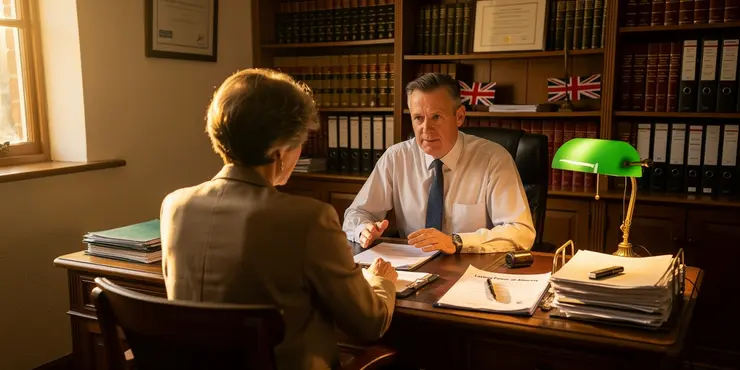
Why is an Lasting Power of Attorney (LPA) important?
Relevance: 75%
-
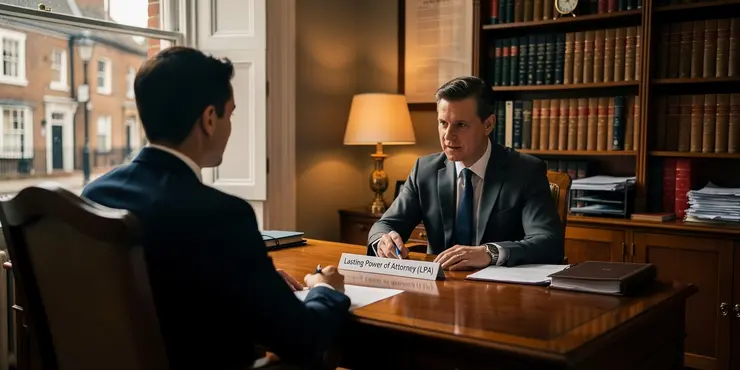
Is a lawyer needed to set up a Lasting Power of Attorney (LPA)?
Relevance: 74%
-
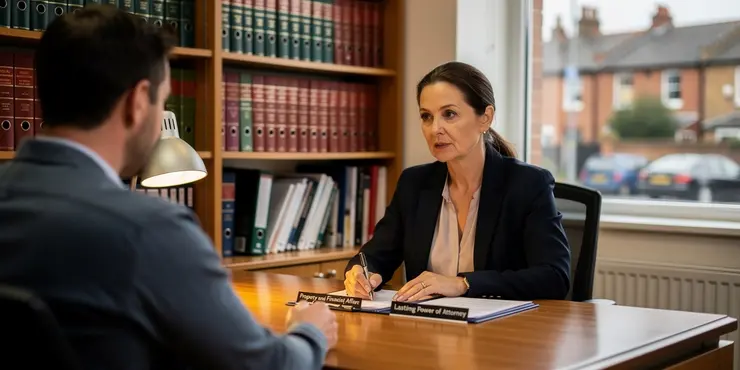
What decisions can an attorney make under a Property and Financial Affairs Lasting Power Attorney?
Relevance: 73%
-
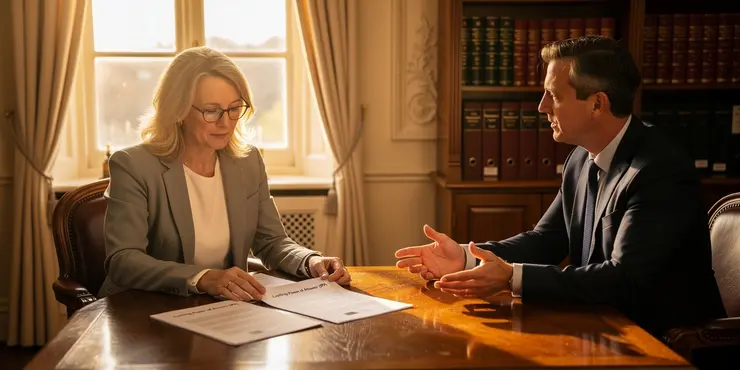
What is the role of the Office of the Public Guardian in regards to a Lasting Power of Attorney (LPA)?
Relevance: 72%
-
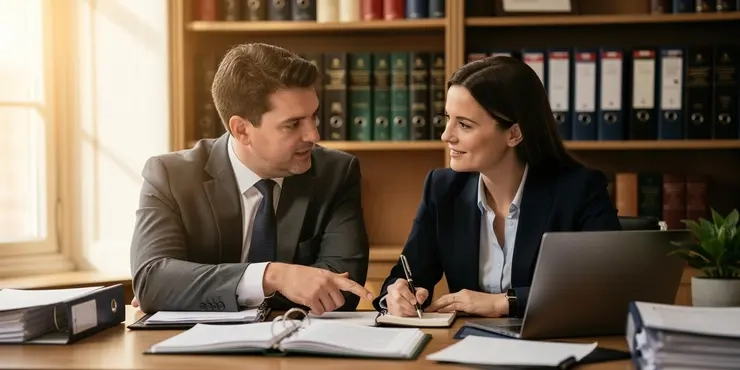
How do attorneys with Lasting Power of Attorney make decisions if there's more than one?
Relevance: 70%
-
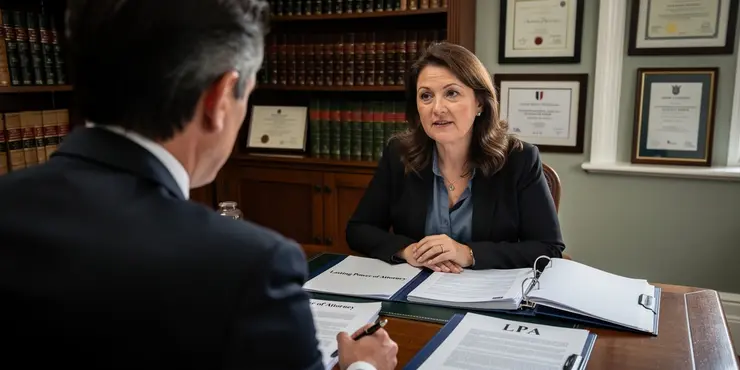
When does a Lasting Power of Attorney (LPA) come into effect?
Relevance: 68%
-
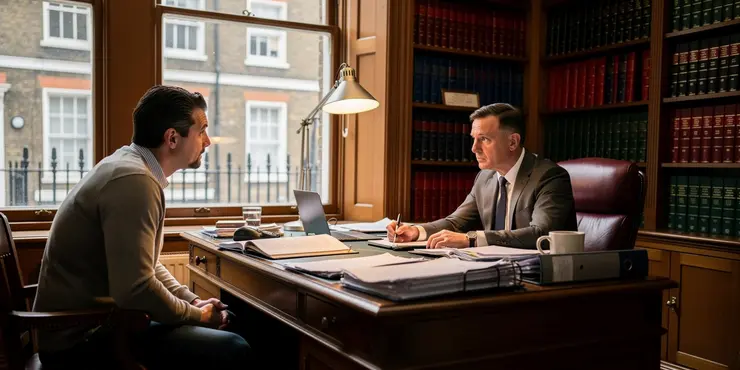
What happens if the attorney with lasting power of attorney does not act in my best interests?
Relevance: 64%
-
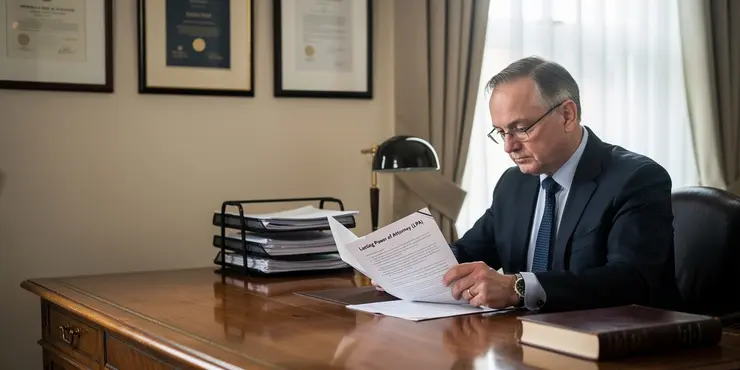
What are the restrictions on attorneys under an LPA?
Relevance: 61%
-
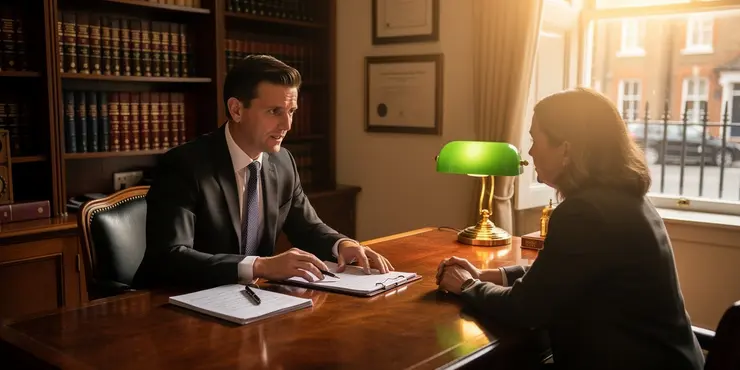
Are there costs involved in setting up an Lasting Power of Attorney (LPA)?
Relevance: 59%
-
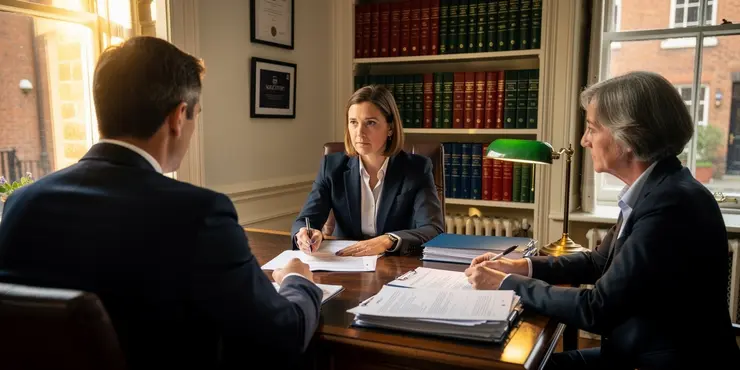
Can I have more than one attorney in an LPA?
Relevance: 58%
-
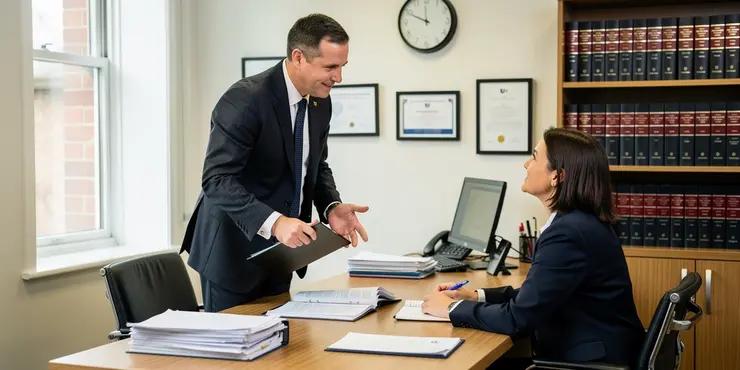
Can the Chief Law Officer for England and Wales overrule a court?
Relevance: 43%
-
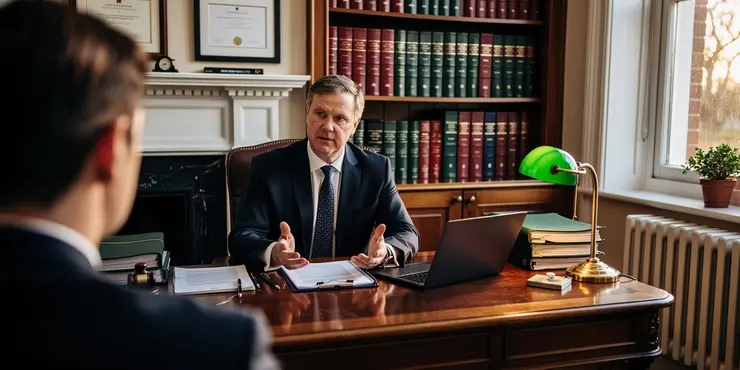
Can the Chief Law Officer for England and Wales intervene in a legal case?
Relevance: 40%
-
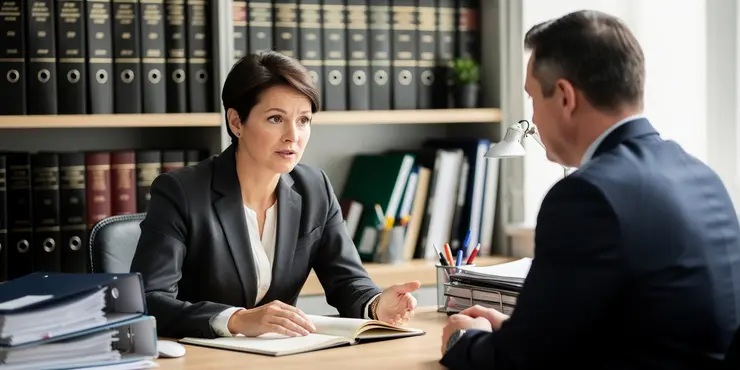
Can the Chief Law Officer for England and Wales make decisions on public prosecution matters?
Relevance: 40%
-
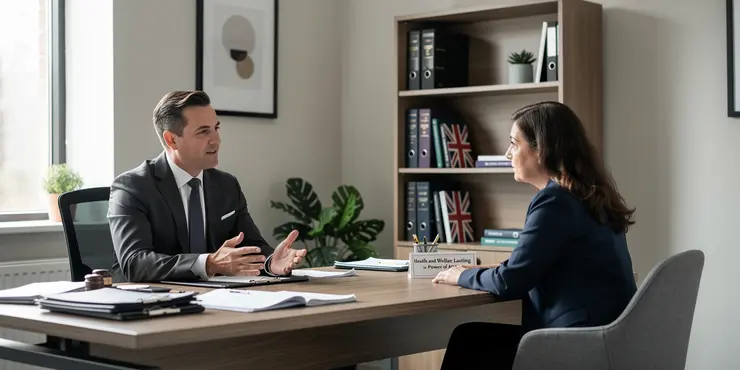
What powers does an attorney have in a Health and Welfare LPA?
Relevance: 37%
-
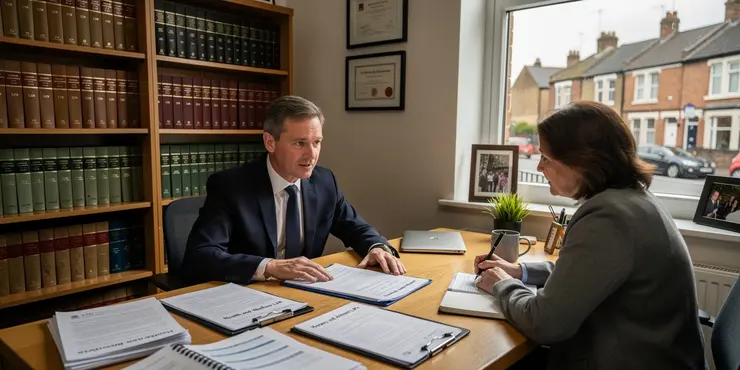
What powers does an attorney have in a Health and Welfare LPA?
Relevance: 37%
-
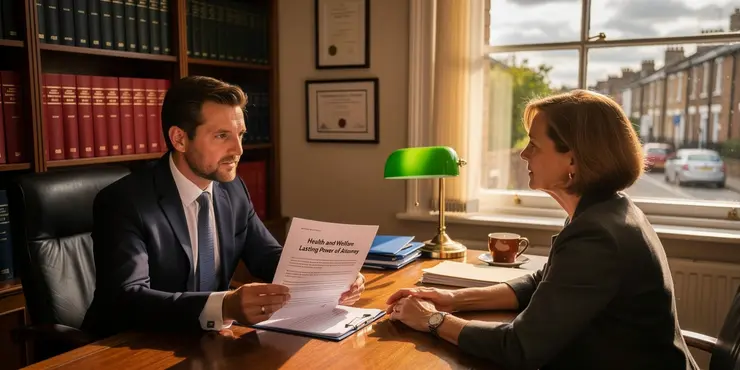
What powers does an attorney have in a Health and Welfare LPA?
Relevance: 37%
-
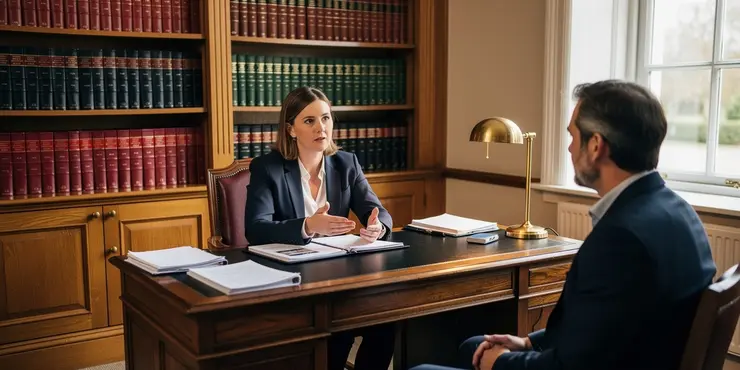
What powers does an attorney have in a Health and Welfare LPA?
Relevance: 37%
-
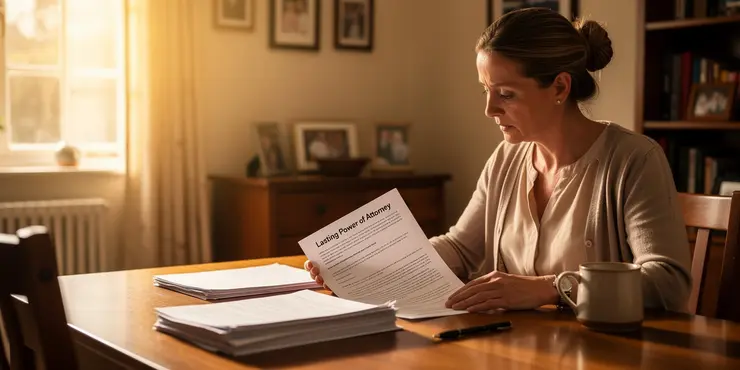
What legal resources are available for carers of Alzheimer's patients?
Relevance: 34%
-
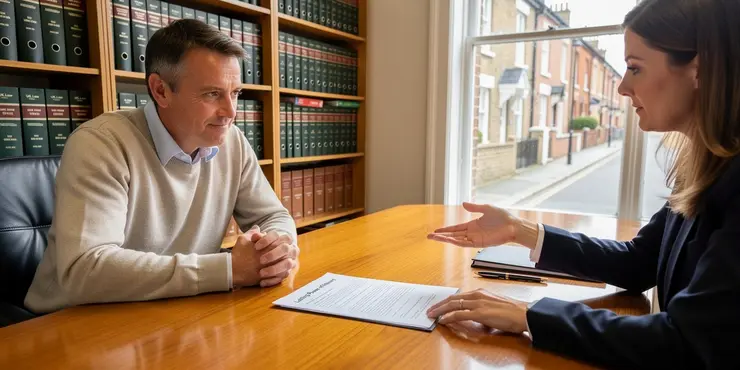
Can an LPA be used while I still have mental capacity?
Relevance: 33%
-
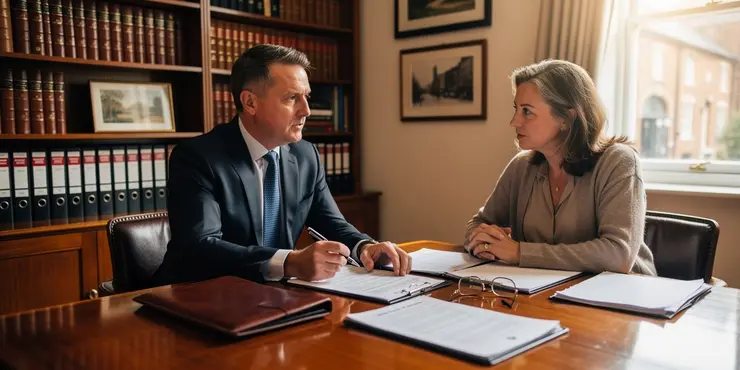
Is it necessary to have both types of LPAs?
Relevance: 33%
-
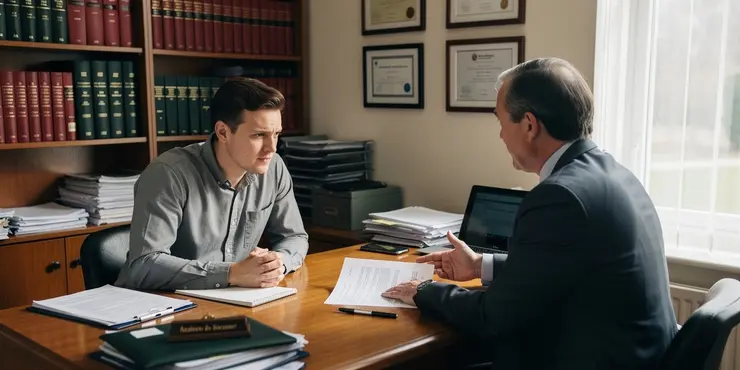
Is the position of the Chief Law Officer for England and Wales unique to the UK?
Relevance: 33%
-
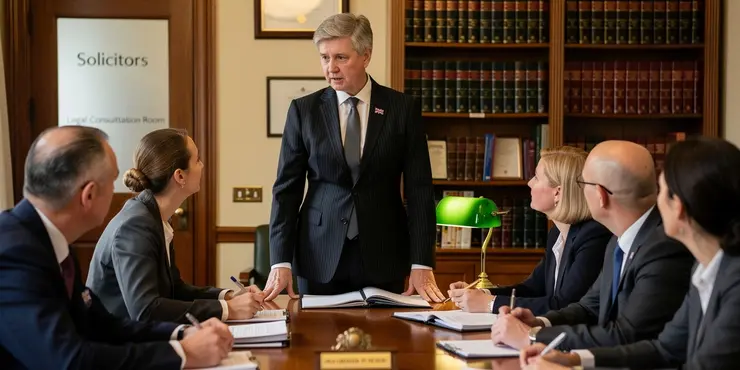
How does the Chief Law Officer for England and Wales relate to the judiciary?
Relevance: 32%
-
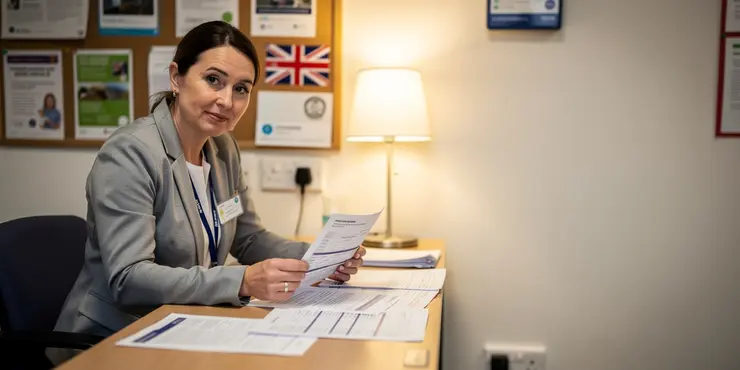
Can I apply for the payment for someone else?
Relevance: 32%
-
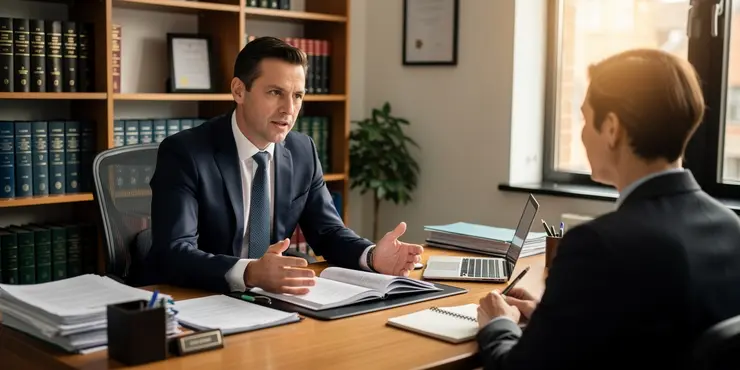
Does the Chief Law Officer for England and Wales in the UK handle prosecution cases?
Relevance: 32%
-
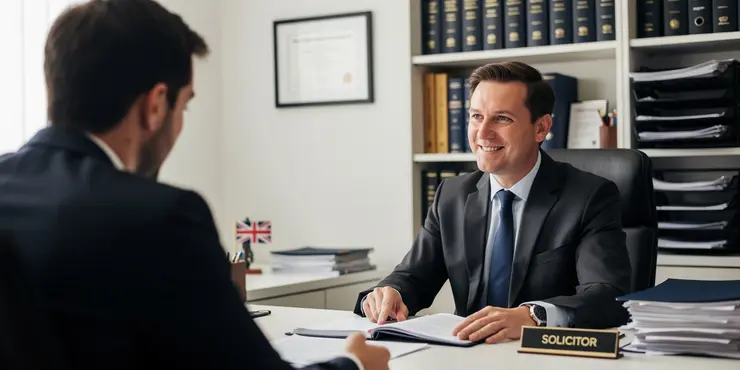
Can my attorney check my immigration status for me?
Relevance: 32%
-
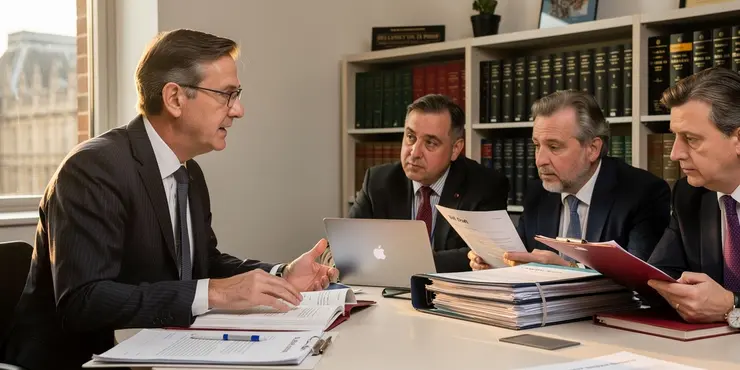
How is the Chief Law Officer for England and Wales involved in the legislative process in the UK?
Relevance: 31%
-
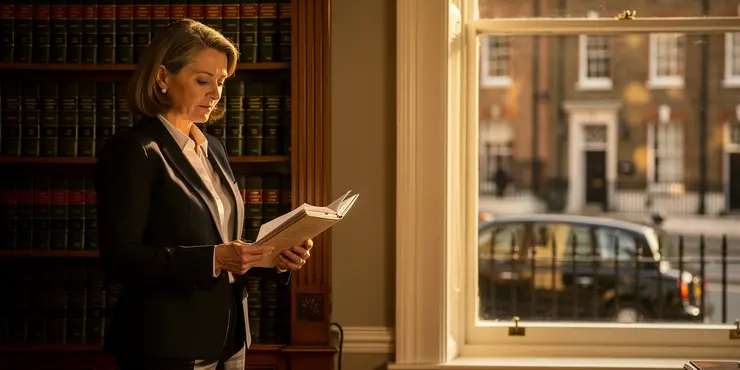
What is the role of the Chief Law Officer for England and Wales?
Relevance: 31%
What is a Power of Attorney?
A Power of Attorney (POA) is a crucial legal document that allows an individual, referred to as the 'donor', to appoint one or more people, known as 'attorneys', to manage their affairs if they become unable to do so. This can include decisions related to finances, property, and personal welfare. In the United Kingdom, a Power of Attorney is particularly important for ensuring that someone trusted can make decisions in your best interests should you become incapacitated.
Types of Power of Attorney
In the UK, there are primarily two types of Power of Attorney: Ordinary Power of Attorney and Lasting Power of Attorney.
- Ordinary Power of Attorney: This is usually temporary and is only valid while the donor has mental capacity. It is often used if the donor needs help with financial affairs for a specific period, such as during an extended trip abroad.
- Lasting Power of Attorney (LPA): This type can be further divided into two categories:
- Property and Financial Affairs LPA: Allows the attorney to manage financial matters, such as selling property, paying bills, and handling bank accounts.
- Health and Welfare LPA: Enables the attorney to make decisions related to healthcare, living arrangements, and general welfare.
How to Set Up a Power of Attorney
Setting up a Power of Attorney in the UK involves several steps. The first step is to choose your attorney(s) carefully, ensuring they are trustworthy and capable of handling the responsibilities. The necessary forms must be filled out and signed by both the donor and the attorneys, and the document must be registered with the Office of the Public Guardian (OPG).
For an LPA, the registration process can take up to 10 weeks, and it is crucial to ensure that all details are correctly filled out to avoid delays. It is also advisable to seek legal advice when setting up a Power of Attorney to ensure that all legal requirements are met.
Importance of a Power of Attorney
Having a Power of Attorney in place is essential for anyone who wishes to have a trusted individual manage their affairs if they are incapacitated. It offers peace of mind knowing that your financial, property, and health-related decisions are in safe hands. Additionally, it helps to avoid court-appointed deputies who may not be familiar with the donor's wishes and preferences.
Without a Power of Attorney, loved ones may face lengthy and costly legal processes to gain control over the donor's affairs, making it an essential legal safeguard for anyone concerned about future incapacity.
What is a Power of Attorney?
A Power of Attorney is an important paper. It lets a person, called the 'donor', choose someone else to help them. This person is called an 'attorney'. The attorney makes decisions when the donor cannot. These decisions can be about money, home, or personal care. In the UK, having a Power of Attorney is important so someone you trust can help you when needed.
Types of Power of Attorney
In the UK, there are two main types of Power of Attorney: Ordinary and Lasting.
- Ordinary Power of Attorney: This is for a short time. It works only when the donor is okay to make choices. It's useful if the donor needs help with money, like when traveling abroad for a long time.
- Lasting Power of Attorney (LPA): This type has two parts:
- Property and Financial Affairs LPA: Lets the attorney handle money things, like selling a house, paying bills, or using the bank.
- Health and Welfare LPA: Lets the attorney decide about health and care, like where to live and what healthcare to get.
How to Set Up a Power of Attorney
Making a Power of Attorney in the UK has steps to follow. First, pick your attorney(s) carefully. They should be people you trust and who can do the job well. You need to fill out papers and both you and the attorney must sign them. Then, the papers go to the Office of the Public Guardian (OPG).
For a Lasting Power of Attorney, it can take up to 10 weeks to finish. Make sure you fill everything out right to avoid waiting longer. It’s a good idea to ask a lawyer for help to make sure you do everything correctly.
Importance of a Power of Attorney
A Power of Attorney is important if you want someone you trust to help you when you're not able to. It makes you feel safe knowing your money, home, and health decisions are in good hands. Without it, your family might have to go to court, which can take a long time and cost a lot of money. Having a Power of Attorney can stop this from happening and makes sure your wishes are known.
Frequently Asked Questions
What is a Power of Attorney?
A Power of Attorney is a legal document that allows you to appoint someone else to act on your behalf in legal, financial, or health matters.
Who can be appointed as an attorney under a Power of Attorney?
You can appoint anyone you trust, such as a family member, friend, or professional, to be your attorney.
What types of Power of Attorney are there in the UK?
In the UK, there are two main types: 1) Ordinary Power of Attorney and 2) Lasting Power of Attorney (LPA), which includes LPAs for financial decisions and health and care decisions.
What is the difference between an Ordinary Power of Attorney and a Lasting Power of Attorney?
An Ordinary Power of Attorney is valid only while you have mental capacity and covers financial affairs. A Lasting Power of Attorney remains valid even if you lose mental capacity and can cover either health and welfare or property and financial affairs.
How do I create a Lasting Power of Attorney?
To create an LPA, you must complete specific forms provided by the Office of the Public Guardian, get these signed by witnesses, and then register the document with the Office of the Public Guardian.
What is the role of the Office of the Public Guardian?
The Office of the Public Guardian (OPG) registers LPAs, oversees attorneys, and investigates any complaints about their actions.
Do I need a solicitor to create a Power of Attorney?
While it's not mandatory to use a solicitor, it can be helpful to ensure the document is correctly completed and properly reflects your wishes.
Can a Power of Attorney be revoked?
Yes, you can revoke a Power of Attorney at any time as long as you have mental capacity. You need to notify your attorney and the Office of the Public Guardian in writing.
What happens if I don’t have a Power of Attorney and lose mental capacity?
If you lose mental capacity without a Power of Attorney, your family or carers will need to apply to the Court of Protection to get a deputy appointed to make decisions on your behalf.
Can an attorney make decisions about my health and welfare?
Yes, but only if you have granted them a Lasting Power of Attorney specifically for health and welfare decisions.
What decisions can an attorney make under a financial Lasting Power of Attorney?
An attorney can manage your bank accounts, pay your bills, collect any benefits or pension, and make financial investments on your behalf.
Is there a fee to register a Lasting Power of Attorney?
Yes, there is a fee to register an LPA with the Office of the Public Guardian. As of 2023, the fee is £82 per LPA.
Can multiple people be appointed as attorneys?
Yes, you can appoint more than one person as your attorney. You can specify if they must act jointly or independently.
Does a Power of Attorney need to be witnessed?
Yes, the document must be signed by a witness to confirm that it was signed voluntarily and you were of sound mind when signing it.
What should I consider when choosing an attorney?
Consider the trustworthiness, reliability, and willingness of the person to act in your best interests. It's also important they understand the responsibilities involved.
What is a Power of Attorney?
A Power of Attorney is a paper that lets someone else make choices for you. This person can help with money, health, or other things. It’s like giving them permission to help you.
Here’s how it works:
- You choose someone you trust. This person is called your 'attorney'.
- You decide what they can help with.
- You sign a form to give them permission.
If you need help reading or understanding, you can ask a friend, family member, or use tools like text-to-speech that read out loud for you.
A Power of Attorney is a paper that gives someone you trust the power to help you make choices. This person can help you with money, legal stuff, or health decisions.
Who Can Be an Attorney with Power of Attorney?
A Power of Attorney is a legal paper. It lets someone you trust help you make decisions or do things for you. This person is called an attorney.
Here is who can be your attorney:
- Someone over 18 years old
- Someone you trust
- They can be a family member or a friend
If you need help, you can use:
- Help from a trusted person when reading
- Draw pictures to help you understand
- Take notes in your own words
You can pick someone you trust to help make decisions for you. This could be a family member, a friend, or a professional helper.
What kinds of Power of Attorney are there in the UK?
A Power of Attorney is when you let someone you trust make decisions for you.
In the UK, there are a few types:
- Lasting Power of Attorney (LPA): This lets someone make decisions about health, care, and money if you can't.
- Enduring Power of Attorney (EPA): This is about money and property. It's an older type and was before LPA.
- Ordinary Power of Attorney: This is for a short time when you need help with financial decisions.
It helps to talk to someone if you have questions. You can also use pictures or simple notes to remember what each type does.
In the UK, there are two main types of Power of Attorney:
- Ordinary Power of Attorney: This is for short-term help with money and property.
- Lasting Power of Attorney (LPA): This is for when you might need help for a long time. It has two kinds:
- For money and property decisions
- For health and care decisions
If you find reading hard, here are some tips:
- Use a ruler or your finger to follow the words.
- Try reading with someone else who can help you.
- Break it down into smaller bits and take your time.
How is an Ordinary Power of Attorney different from a Lasting Power of Attorney?
A Power of Attorney gives someone else permission to help you make decisions. There are two kinds:
Ordinary Power of Attorney:
- This is only for a short time.
- It works when you can still make decisions yourself.
- You might use it if you are away or busy.
Lasting Power of Attorney:
- This is for a long time.
- It helps if you can't make decisions later on.
- It takes more planning to set up.
If you need help, you can:
- Ask someone you trust to explain it.
- Use pictures to help you understand.
- Write down your questions to ask later.
An Ordinary Power of Attorney works only if you can make your own decisions. It helps with money and bills. A Lasting Power of Attorney still works even if you can't make your own decisions. It can help with your health and care or with your money and property.
If you find reading hard, try using audiobooks or reading apps with big letters. You can also ask someone you trust to help explain things.
How do I make a Lasting Power of Attorney?
A Lasting Power of Attorney (LPA) lets someone you trust help you make decisions. Here's a simple guide on how to make one:
- Choose someone you trust: Pick a family member or friend who can help you.
- Fill out a form: You need to complete an LPA form. You can get this form online.
- Get it signed: Ask people to sign the form. A lawyer or someone official may need to sign too.
- Send the form: Send the form to the right office or place. They will check and approve it.
- Use helpful tools: You can ask a helper or use pictures to understand better.
If you need help, ask a family member or a support worker.
If you want to make an LPA, you need to fill out special forms. The Office of the Public Guardian has these forms. You need to get people to watch you sign the forms, and they will also sign the forms. Then, you send the forms to the Office of the Public Guardian to be registered.
For help, you can ask someone you trust to go through the forms with you. You can also use tools like simple checklists to keep track of steps. Taking breaks while filling out the forms is okay too!
What Does the Office of the Public Guardian Do?
The Office of the Public Guardian helps look after people who cannot make decisions for themselves. This can be because of being sick or having a disability.
The Office makes sure these people are safe and that their money and property are taken care of properly.
Helpful tools: Use pictures or drawings to help understand better. Ask someone you trust to explain anything you find hard.
The Office of the Public Guardian (OPG) helps people with their money and care decisions. They keep a list called LPAs. They make sure people making decisions for others do a good job. If someone thinks decisions are not right, they will look into it.
Do I Need a Lawyer to Make a Power of Attorney?
A Power of Attorney is a paper that lets someone else help you with important things, like money or health choices.
You do not have to get a lawyer to make this paper. But a lawyer can help.
Some people feel better with a lawyer's help to make sure everything is right.
If you do not use a lawyer, you can ask for help from a trusted friend or family member.
There are also online forms and guides to help you make a Power of Attorney.
Always make sure the paper is signed and dated correctly.
You don't have to use a lawyer, but they can help make sure everything in the paper is done right and says what you want.
Can you take away a Power of Attorney?
Yes, you can take away (stop) a Power of Attorney. This means the person cannot make choices for you anymore.
Here are some ways to do it:
- Tell the person you want to stop the Power of Attorney.
- Write it down. This is called a "note" or "letter." Give it to the person and anyone else who needs to know.
- Ask a lawyer for help. Lawyers know a lot about Power of Attorney.
- Use a computer or phone app to write and keep track of your letters and notes.
If reading is hard, you can ask someone you trust to help you understand and write the notes for you.
Yes, you can stop a Power of Attorney whenever you want, as long as you can still make decisions. You need to tell your attorney and the Office of the Public Guardian by writing a letter.
What happens if I can't make decisions for myself and don't have someone chosen to help?
If you can't make decisions yourself and don't have a Power of Attorney, your family or carers will have to ask a special court for help. This court can choose someone to make decisions for you. This person is called a deputy.
Can a lawyer decide about my health and care?
Yes, but only if you have given them special permission called Lasting Power of Attorney to make health and welfare choices for you.
What Can a Lawyer Do with a Money Power of Attorney?
A Money Power of Attorney is a paper that lets someone, like a lawyer, make money choices for you. Here are some things a lawyer can do:
- Pay bills for you.
- Look after your bank accounts.
- Manage and spend your money.
- Buy or sell things you own, like a home.
You should pick someone you trust to do this. If you need help, you can use pictures or ask a friend to explain.
A lawyer can help with your money. They can look after your bank accounts. They can pay your bills. They can make sure you get any benefits or pension money. They can also help you with money plans and saving.
Do you have to pay to register a Lasting Power of Attorney?
When you want to make a Lasting Power of Attorney, you might need to pay some money.
If you need help with this, you can talk to a family member or a friend. You can also use tools like a calculator to help you count money.
Yes, you have to pay money to register an LPA with the Office of the Public Guardian.
In 2023, it costs £82 for each LPA.
If it is hard to understand money and numbers, ask someone you trust for help.
Can more than one person be chosen as helpers?
You can choose more than one person to help you. These people are called your attorneys. You can decide if they work together or on their own.
Do you need someone to watch when you sign a Power of Attorney?
A Power of Attorney is a paper that lets someone else help you with important things like money or health. When you sign this paper, you might need someone to watch you sign it. This person is called a "witness." They make sure everything is done right.
Here are some tips to help you:
- Ask a friend or family member to help you understand the paper.
- Use a simple checklist to make sure you have everything you need.
- If you need, ask someone to help you read the paper aloud.
Yes, someone else needs to watch you sign the paper. They do this to make sure you really want to sign it and are thinking clearly when you do.
What should I think about when picking a lawyer?
Here are some tips to help you choose a lawyer:
- Experience: Find out if the lawyer has worked on cases like yours before.
- Communication: Make sure the lawyer can talk to you in a way you understand.
- Cost: Ask how much their help will cost and if there are payment plans.
- Comfort: Choose someone you feel good about and can trust.
If you find it hard to choose, you can:
- Ask family or friends for advice.
- Use online reviews to learn about the lawyer.
- Write down questions to ask the lawyer.
Think about if the person is honest and if you can depend on them. They should want to help you. They also need to know what their job is and what they have to do.
Useful Links
This website offers general information and is not a substitute for professional advice.
Always seek guidance from qualified professionals.
If you have any medical concerns or need urgent help, contact a healthcare professional or emergency services immediately.
Some of this content was generated with AI assistance. We’ve done our best to keep it accurate, helpful, and human-friendly.
- Ergsy carfully checks the information in the videos we provide here.
- Videos shown by Youtube after a video has completed, have NOT been reviewed by ERGSY.
- To view, click the arrow in centre of video.
- Most of the videos you find here will have subtitles and/or closed captions available.
- You may need to turn these on, and choose your preferred language.
- Go to the video you'd like to watch.
- If closed captions (CC) are available, settings will be visible on the bottom right of the video player.
- To turn on Captions, click settings .
- To turn off Captions, click settings again.
More Items From Ergsy search
-

What is a Power of Attorney?
Relevance: 100%
-

What Is A Power of Attorney
Relevance: 99%
-

What is a Lasting Power of Attorney?
Relevance: 92%
-

What is a lasting Power of Attorney?
Relevance: 89%
-

What are the types of Lasting Power of Attorney?
Relevance: 85%
-

What are the types of Lasting Power of Attorney (LPA)?
Relevance: 84%
-

Lasting Power of Attorney UK - A 2023 Guide
Relevance: 84%
-

Court of Protection and lasting power of attorney.
Relevance: 82%
-

How to Set Up a Lasting Power of Attorney
Relevance: 81%
-

How does an LPA differ from an Enduring Power of Attorney?
Relevance: 79%
-

Who can be appointed as an attorney under a Lasting Power of Attorney?
Relevance: 79%
-

What powers does an attorney have in a Health and Welfare LPA?
Relevance: 77%
-

How do I set up a Lasting Power of Attorney?
Relevance: 77%
-

Why is an Lasting Power of Attorney (LPA) important?
Relevance: 75%
-

Is a lawyer needed to set up a Lasting Power of Attorney (LPA)?
Relevance: 74%
-

What decisions can an attorney make under a Property and Financial Affairs Lasting Power Attorney?
Relevance: 73%
-

What is the role of the Office of the Public Guardian in regards to a Lasting Power of Attorney (LPA)?
Relevance: 72%
-

How do attorneys with Lasting Power of Attorney make decisions if there's more than one?
Relevance: 70%
-

When does a Lasting Power of Attorney (LPA) come into effect?
Relevance: 68%
-

What happens if the attorney with lasting power of attorney does not act in my best interests?
Relevance: 64%
-

What are the restrictions on attorneys under an LPA?
Relevance: 61%
-

Are there costs involved in setting up an Lasting Power of Attorney (LPA)?
Relevance: 59%
-

Can I have more than one attorney in an LPA?
Relevance: 58%
-

Can the Chief Law Officer for England and Wales overrule a court?
Relevance: 43%
-

Can the Chief Law Officer for England and Wales intervene in a legal case?
Relevance: 40%
-

Can the Chief Law Officer for England and Wales make decisions on public prosecution matters?
Relevance: 40%
-

What powers does an attorney have in a Health and Welfare LPA?
Relevance: 37%
-

What powers does an attorney have in a Health and Welfare LPA?
Relevance: 37%
-

What powers does an attorney have in a Health and Welfare LPA?
Relevance: 37%
-

What powers does an attorney have in a Health and Welfare LPA?
Relevance: 37%
-

What legal resources are available for carers of Alzheimer's patients?
Relevance: 34%
-

Can an LPA be used while I still have mental capacity?
Relevance: 33%
-

Is it necessary to have both types of LPAs?
Relevance: 33%
-

Is the position of the Chief Law Officer for England and Wales unique to the UK?
Relevance: 33%
-

How does the Chief Law Officer for England and Wales relate to the judiciary?
Relevance: 32%
-

Can I apply for the payment for someone else?
Relevance: 32%
-

Does the Chief Law Officer for England and Wales in the UK handle prosecution cases?
Relevance: 32%
-

Can my attorney check my immigration status for me?
Relevance: 32%
-

How is the Chief Law Officer for England and Wales involved in the legislative process in the UK?
Relevance: 31%
-

What is the role of the Chief Law Officer for England and Wales?
Relevance: 31%


